Venezuela – Antarctica
by Christina S
.
We have come to the end of our global reading journey. It has been an amazing literary journey and one that has certainly given me a new appreciation not only for the amazing books to be found around the globe, but also for how deep and diverse the Santa Fe Public Library collection is.
Looking back on this journey I was surprised by some of the challenges in locating materials and also by ones that I expected to be difficult but weren’t. I was surprised by some of the patterns that I began to see. Some countries had predominantly male authors; some predominantly female authors; in places where there was a history of colonial rule the literature was predominantly about the rule and the after effects; in places that have a long history and/or recent history with violence the majority of the written material is about that occurrence. It is understandable why that is, after all literature can be cathartic and help both the writer and reader understand and process trauma.
Even though neither is a country in it’s own right and scarcely inhabited, I have included the Artic and Antarctica here because stories are written about those far-flung and desolate places. These two places are unique on this planet because they are perhaps the only places on Earth that belong to no one, but at the same time belong to everyone.
I hope that you have enjoyed this global literary journey as much as I have! Thank you for joining me as we explored the literature of the World.
.
Venezuela

It Would be Night in Caracas : a novel by Karina Sainz Borgo
In Caracas, Venezuela, Adelaida Falcón stands over an open grave. Alone, she buries her mother–the only family she has ever known–and worries that when night falls thieves will rob the grave. Even the dead cannot find peace here. Adelaida had a stable childhood in a prosperous Venezuela that accepted immigrants in search of a better life, where she lived with her single-mother in a humble apartment. But now? Every day she lines up for bread that will inevitably be sold out by the time she reaches the registers. Every night she tapes her windows to shut out the tear gas raining down on protesters. When looters masquerading as revolutionaries take over her apartment, Adelaida must make a series of gruesome choices in order to survive in a country disintegrating into anarchy, where citizens are increasingly pitted against each other. But just how far is she willing to go?
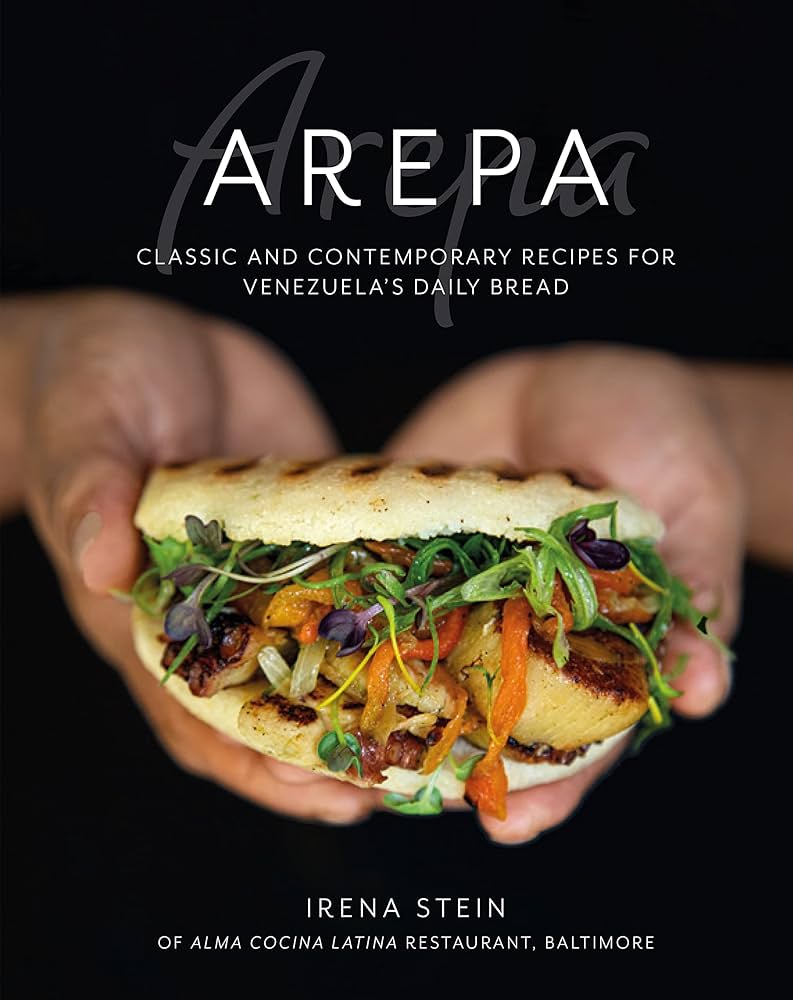
Arepa : classic & contemporary recipes for Venezuela’s daily bread by Irena Stein
The arepa—a crisp round pocket made from corn flour—is one of Venezuela’s defining foods. Gluten-free and dairy-free, arepas are endlessly adaptable, unarguably delicious, and fun to eat. From chicken to cheese, avocado, and pork, just about anything you would put between two slices of bread can fit into an arepa. Making arepas is easily accomplished in any home kitchen with four simple ingredients—corn flour, water, oil, and salt—and they can be assembled in advance. They contain no replacement or unnatural ingredients, making them way healthier than most gluten-free bread recipes. No rising is required, making the dough easier than bread, and there’s no rolling, making them less tricky than tacos. With a little practice, it will become simple to add arepas to your culinary repertoire.
Doña Barbara by Rómulo Gallegos
Dona Barbara tells the tale of an epic struggle between two cousins for a cast estate and ranch in the Venezuelan llano, or prairie … Published in 1929 and all but forgotten by Anglophone readers, Dona Barbara is one of the first examples of magical realism, laying the groundwork for later authors such as Gabriel Garcia Marquez and Mario Vargas Llosa.
In Venezuela, Doña Barbara is a beautiful and mysterious woman with a ferocious power over men — it’s even rumored she’s a witch. She owns a ranch, the Altimara, but must struggle constantly to keep it. When her cousin Santos Luzardo returns to the plains in order to reclaim his land and cattle, he reluctantly faces off against Doña Barbara, and their battle becomes simultaneously one of violence and seduction.
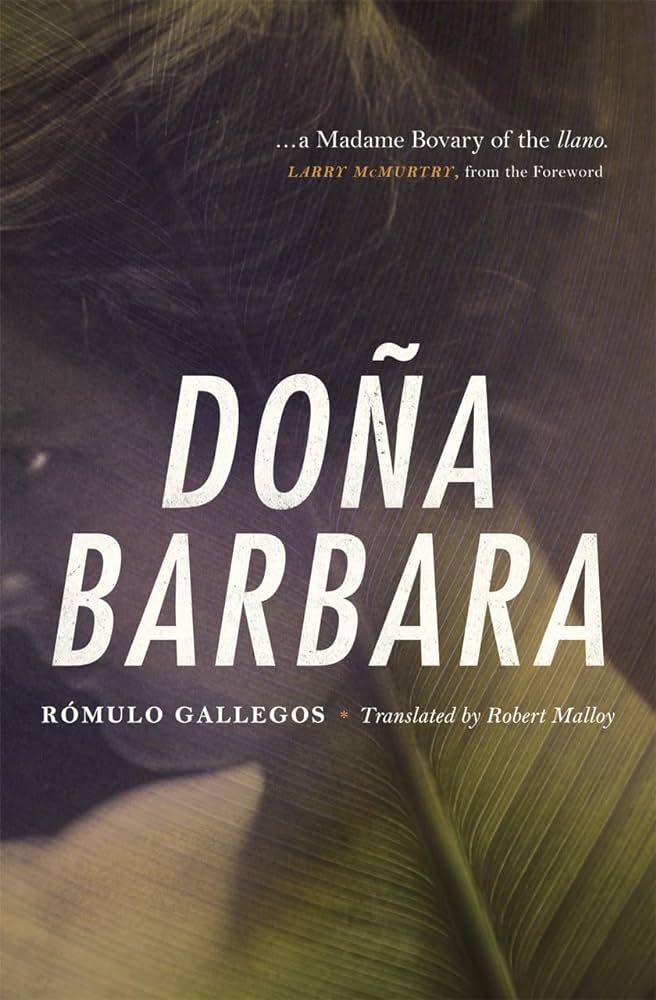
The Sun and the Void by Gabriela Romero LaCruz
When Reina arrives at Aguila Manor, her heart stolen from her chest, she’s on the verge of death — until her estranged grandmother, a dark sorceress in the Don’s employ, intervenes. Indebted to a woman she never knew, and smitten with the upper-caste daughter of the house, Celeste, Reina will do anything to earn — and keep — the family’s favor. Even the bidding of the ancient god who speaks to her from the Manor’s foundations. To save the woman she loves, Reina will have to defy the gods themselves, and become something she never could have imagined
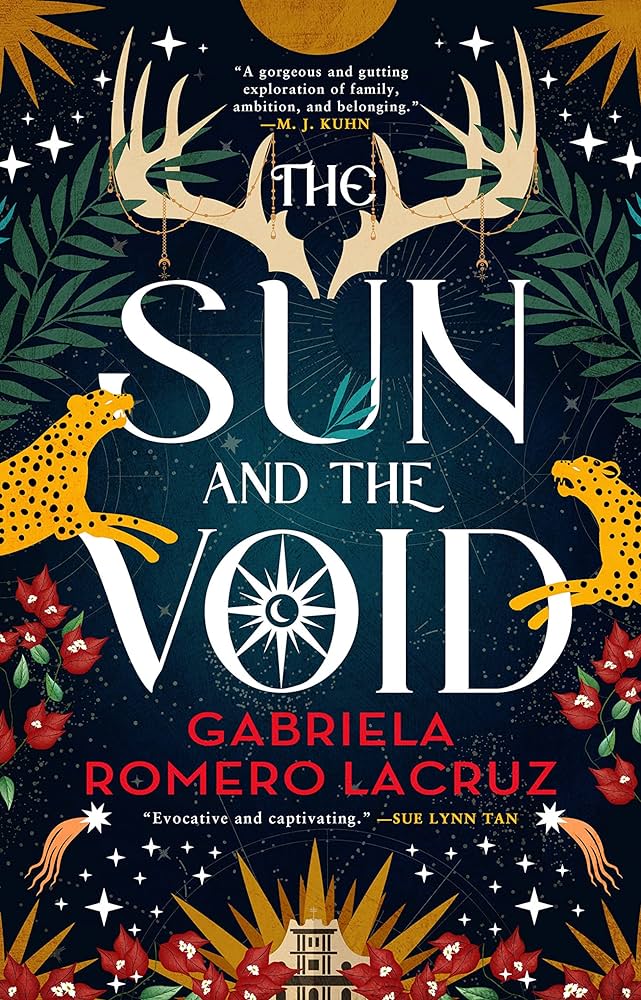
.
Vietnam
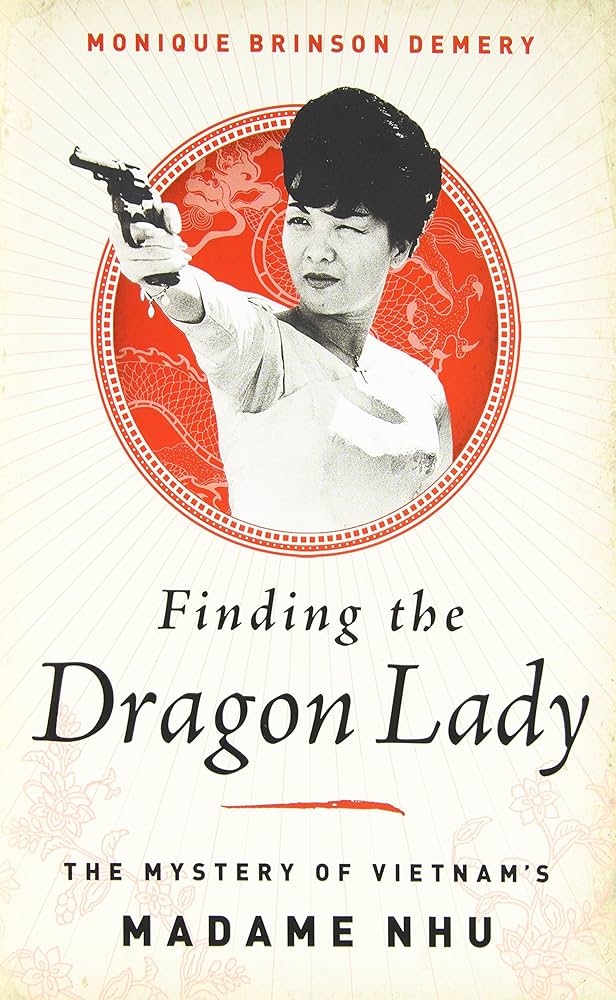
Finding the Dragon Lady: the mystery of Vietnam’s Madame Nhu by Monique Brinson Demery
When Monique Demery set out to find the infamous Madame Ngo Dinh Nhu, the former First Lady of South Vietnam had been in exile for over forty years, and had lived in near seclusion for the last thirty of them. Entire books have been written about the consequences of that November coup: sorting out America’s role and what effect it had on the coming war, but for the most part, historians were flummoxed by the Dragon Lady. Her hourglass figure filled and splash of color enlightened what were otherwise murky beginnings to a dismal war. And she gave Americans something to rally around, even if it was only to cheer against her. But little was heard from the woman herself. The last New York Times reporter who tried to get access to Madame Nhu in 1987 was turned away at the door and told she charged for interviews–one thousand dollars a pop. But somehow, through a mixture of patience, cunning, and a bit of luck, Demery managed to strike up a years-long relationship with the Dragon Lady and ultimately was entrusted with her diary and autobiography.
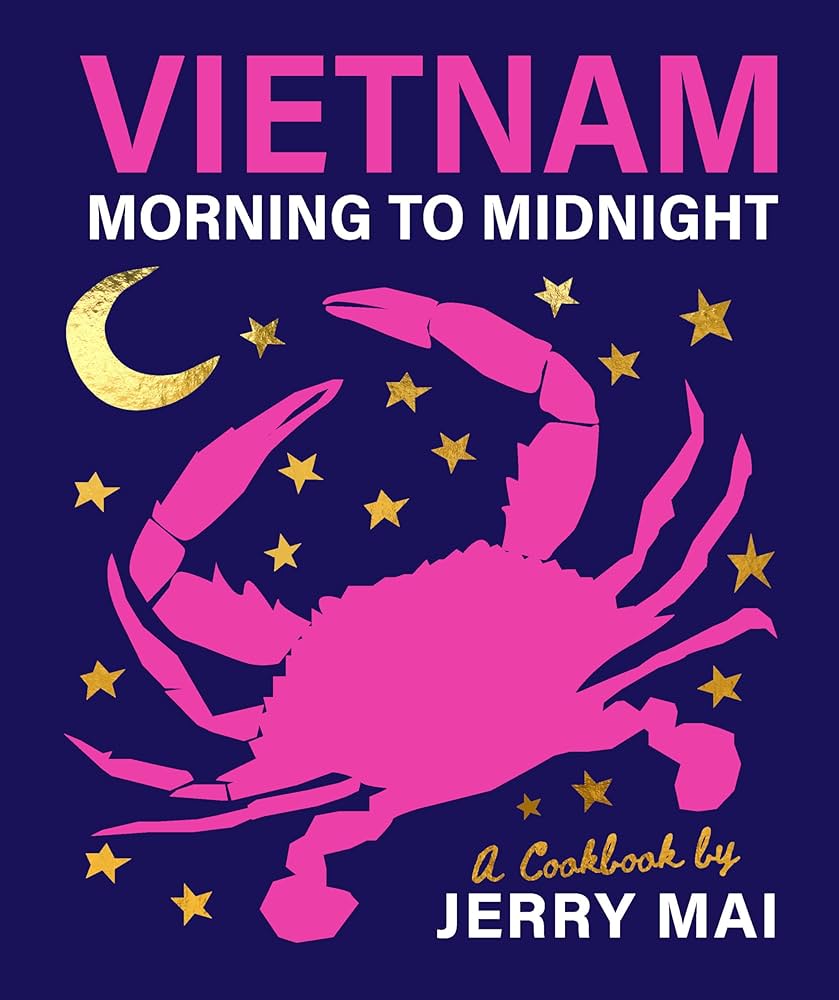
Vietnam : morning to midnight : a cookbook by Jerry Mai
As the sun rises, mornings start early in Vietnam: locals perch on plastic stools, slurping large bowls of beef pho, while others grab a crispy pork banh mi for breakfast on the go. Lunch might include delicious grilled meats piled high onto rice, or a cold noodle salad to help stay cool in the midday heat. Weaving through the bustling streets, snacks are all around: rice paper rolls, savory pancakes, sweet treats, drinks and more. At the end of the day, grilled or barbecued savory snacks are the perfect foil for freshly brewed beer and are the best prelude to dinner – a communal feast of shared dishes. This is how Vietnam eats, and you’ll find it all here in Jerry Mai’s Vietnam: Morning to Midnight.
On Earth We’re Briefly Gorgeous : a novel by Ocean Vuong
Brilliant, heartbreaking, tender, and highly original – poet Ocean Vuong’s debut novel is a sweeping and shattering portrait of a family, and a testament to the redemptive power of storytelling. On Earth We’re Briefly Gorgeous is a letter from a son to a mother who cannot read. Written when the speaker, Little Dog, is in his late twenties, the letter unearths a family’s history that began before he was born — a history whose epicenter is rooted in Vietnam — and serves as a doorway into parts of his life his mother has never known, all of it leading to an unforgettable revelation. At once a witness to the fraught yet undeniable love between a single mother and her son, it is also a brutally honest exploration of race, class, and masculinity
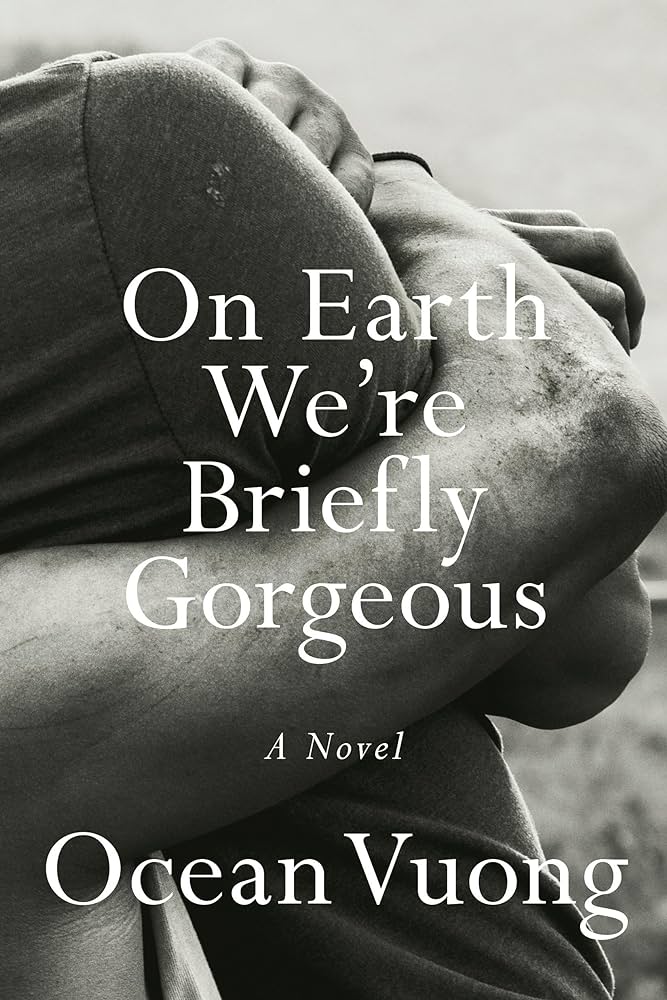
The Mountains Sing: a novel by Nguyen Que Mai Phan
Trần Diệu Lan, who was born in 1920, was forced to flee her family farm with her six children during the Land Reform as the Communist government rose in the North. Years later in Hà Nội, her young granddaughter, Hương, comes of age as her parents and uncles head off down the Hồ Chí Minh Trail to fight in a conflict that tore apart not just her beloved country, but also her family. Vivid, gripping, and steeped in the language and traditions of Việt Nam, The Mountains Sing brings to life the human costs of this conflict from the point of view of the Vietnamese people themselves, while showing us the true power of kindness and hope. The Mountains Sing is celebrated Vietnamese poet Nguyễn Phan Quế Mai’s first novel in English.
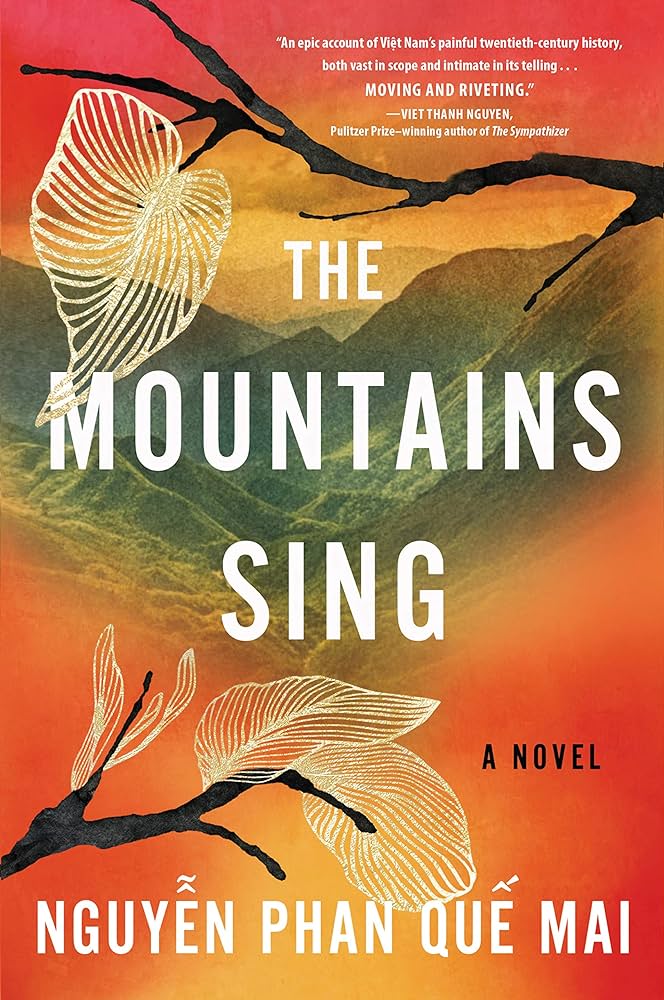
.
Yemen
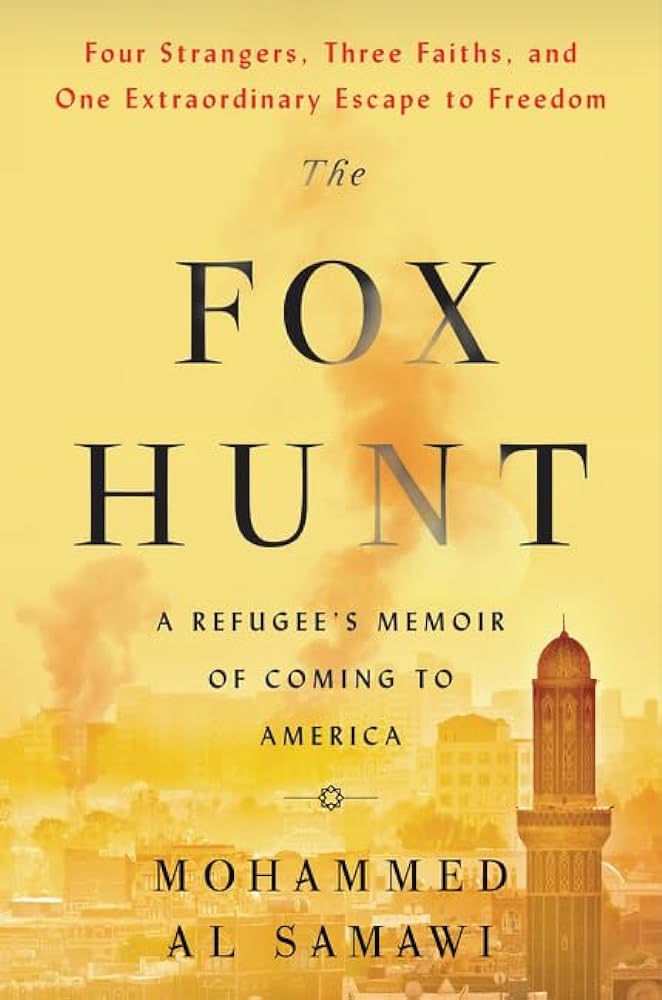
The Fox Hunt : a refugee’s memoir of coming to America by Mohammed Samawi
Born in the Old City of Sana’a, Yemen, to a pair of middle-class doctors, Mohammed Al Samawi was a devout Muslim raised to think of Christians and Jews as his enemy. But when Mohammed was twenty-three, he secretly received a copy of the Bible, and what he read cast doubt on everything he’d previously believed. After connecting with Jews and Christians on social media, and at various international interfaith conferences, Mohammed became an activist, making it his mission to promote dialogue and cooperation in Yemen. Then came the death threats: first on Facebook, then through terrifying anonymous phone calls. To protect himself and his family, Mohammed fled to the southern port city of Aden. He had no way of knowing that Aden was about to become the heart of a north-south civil war, and the battleground for a well-funded proxy war between Iran and Saudi Arabia. As gunfire and grenades exploded throughout the city, Mohammed hid in the bathroom of his apartment and desperately appealed to his contacts on Facebook. Miraculously, a handful of people he barely knew responded. Over thirteen days, four ordinary young people with zero experience in diplomacy or military exfiltration worked across six technology platforms and ten time zones to save this innocent young man trapped between deadly forces– rebel fighters from the north and Al Qaeda operatives from the south.
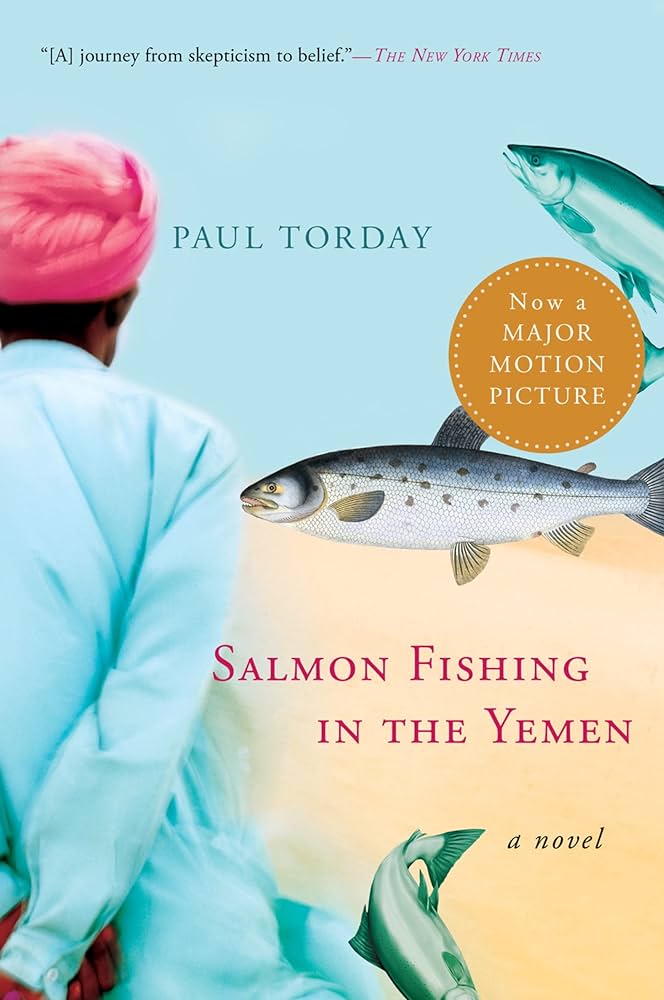
Salmon Fishing in the Yemen: a novel by Paul Torday
Dr. Alfred Jones lives a quiet, predictable life. He works as a civil servant for the National Centre for Fisheries Excellence in London; his wife, Mary, is a determined, no-nonsense financier; he has simple routines and unassuming ambitions. Then he meets Muhammad bin Zaidi bani Tihama, a Yemeni sheikh with money to spend and a fantastic—and ludicrous—dream of bringing the sport of salmon fishing to his home country. Suddenly, Dr. Jones is swept up in an outrageous plot to attempt the impossible, persuaded by both the sheikh himself and power-hungry members of the British government who want nothing more than to spend the sheikh’s considerable wealth. But somewhere amid the bureaucratic spin and Yemeni tall tales, Dr. Jones finds himself thinking bigger, bolder, and more impossibly than he ever has before.
.
Zambia
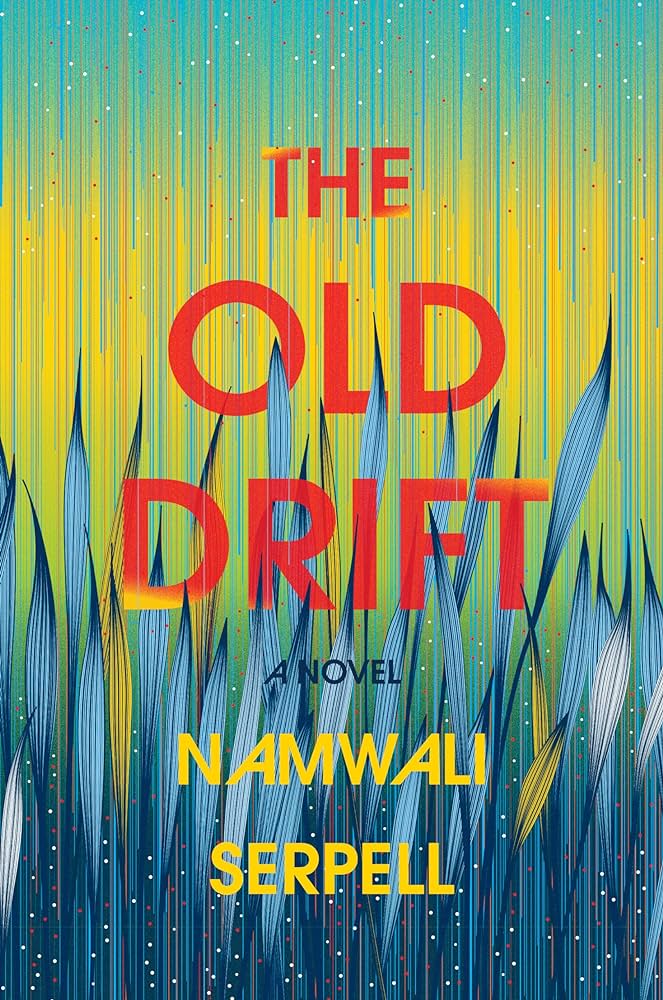
The Old Drift : a novel by Namwali Serpell
On the banks of the Zambezi River, a few miles from the majestic Victoria Falls, there is a colonial settlement called The Old Drift. In a smoky room at the hotel across the river, an Old Drifter named Percy M. Clark, foggy with fever, makes a mistake that entangles the fates of an Italian hotelier and an African busboy. This sets off a cycle of unwitting retribution between three Zambian families (black, white, brown) as they collide and converge over the course of the century, into the present and beyond. As the generations pass, their lives—their triumphs, errors, losses and hopes—emerge through a panorama of history, fairytale, romance and science fiction.
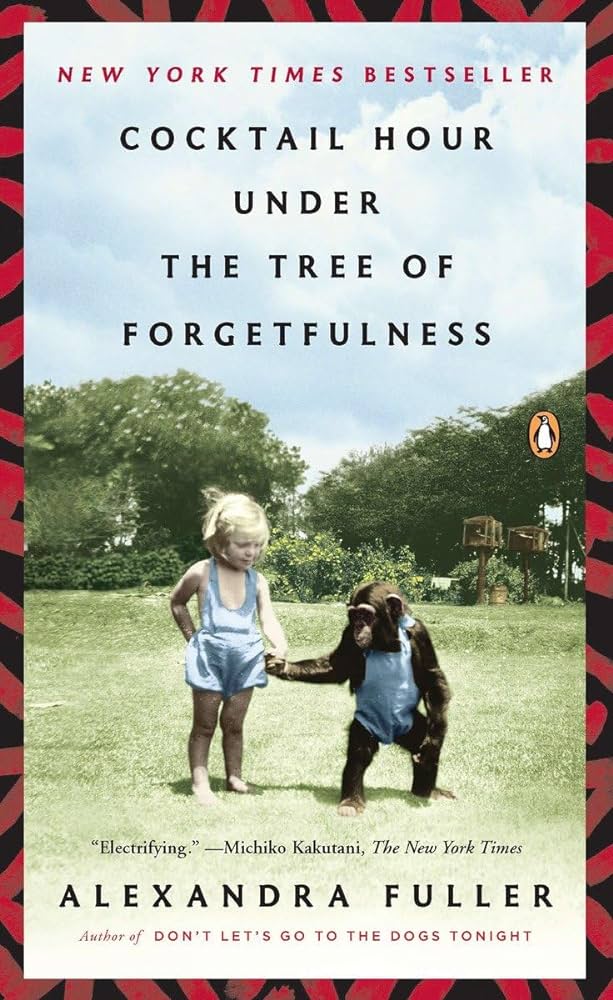
Cocktail Hour Under the Tree of Forgetfulness by Alexandra Fuller
In this sequel to Don’t Let’s Go to the Dogs Tonight, the author returns to Africa and the story of her unforgettable family. In this book she braids a multilayered narrative around the perfectly lit, Happy Valley era Africa of her mother’s childhood; the boiled cabbage grimness of her father’s English childhood; and the darker, civil war torn Africa of her own childhood. At its heart, this is the story of Fuller’s mother, Nicola. Born on the Scottish Isle of Skye and raised in Kenya, Nicola holds dear the kinds of values most likely to get you hurt or killed in Africa: loyalty to blood, passion for land, and a holy belief in the restorative power of all animals. The author interviewed her mother at length and has captured her inimitable voice with remarkable precision.
.
Zimbabwe
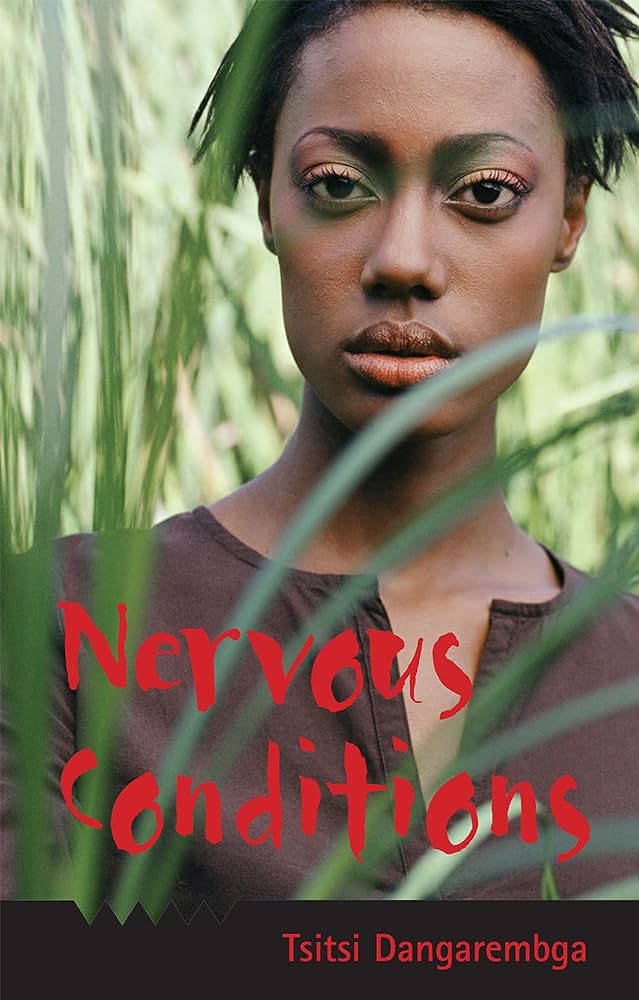
Nervous Conditions: a novel by Tsitsi Dangarembga
Two decades before Zimbabwe would win independence and ended white minority rule, thirteen-year-old Tambudzai Sigauke embarks on her education. On her shoulders rest the economic hopes of her parents, siblings, and extended family, and within her burns the desire for independence. She yearns to be free of the constraints of her rural village and thinks she’s found her way out when her wealthy uncle offers to sponsor her schooling. But she soon learns that the education she receives at his mission school comes with a price.

Dew in the Morning by Shimmer Chinodya
Dew in the Morning was written when the author was eighteen. The intensity of childhood memory is sharp and immediate. Godi, the young boy whose life we experience as he grows up, perceives more than he understands. The ambivalence or instability of the text lies at the juncture between the felt experience of the child, and the rational, interpretative, analysis of the adult. A Bildungsroman, Chinodya captures the centrality of land in the national consciousness: its beauty, its rhythms, its seasons and its fertility. But he does not romanticize the hardships: the droughts, poor harvests, over-crowding, particularly as a result of the inflow of resettled people, and the tensions over land and between peoples as they struggle to survive.
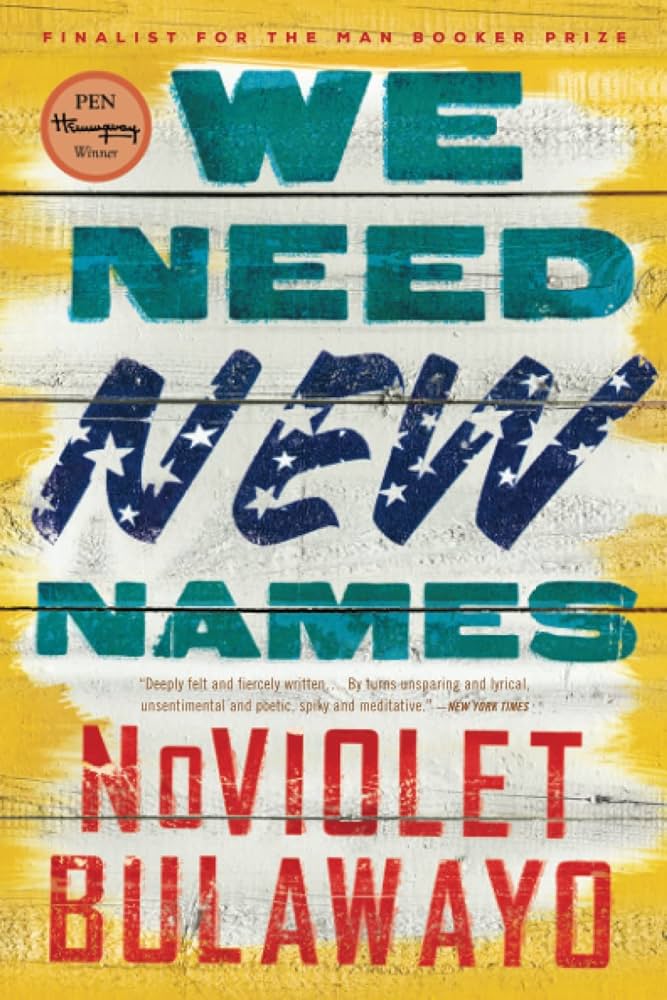
We Need New Names: a novel by NoViolet Bulawayo
Darling is only ten years old, and yet she must navigate a fragile and violent world. In Zimbabwe, Darling and her friends steal guavas, try to get the baby out of young Chipo’s belly, and grasp at memories of Before. Before their homes were destroyed by paramilitary policemen, before the school closed, before the fathers left for dangerous jobs abroad. But Darling has a chance to escape: she has an aunt in America. She travels to this new land in search of America’s famous abundance only to find that her options as an immigrant are perilously few.
.
Arctic
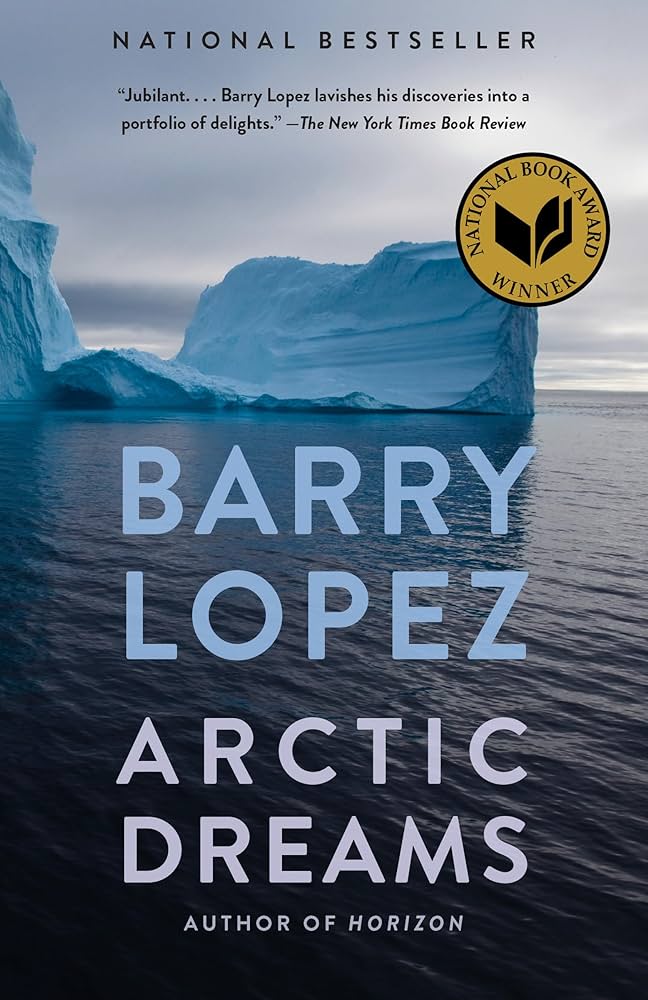
Arctic Dreams : imagination and desire in a northern landscape by Barry Lopez
The Arctic is a perilous place. Only a few species of wild animals can survive its harsh climate. In this modern classic, Barry Lopez explores the many-faceted wonders of the Far North: its strangely stunted forest, its mesmerizing aurora borealis, its frozen seas. Musk oxen, polar bears, narwhal, and other exotic beasts of the region come alive through Lopez’s passionate and nuanced observations. And, as he examines the history and culture of the indigenous people, along with parallel narratives of intrepid, often underprepared and subsequently doomed polar explorers, Lopez drives to the heart of why the austere and formidable Arctic is also a constant source of breathtaking beauty, beguilement, and wonder.
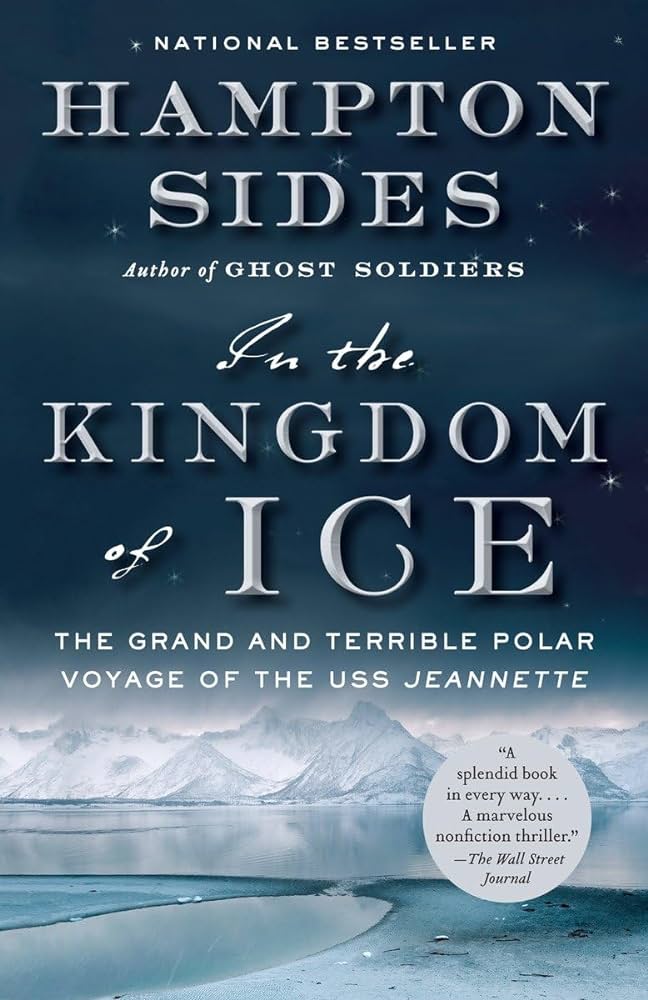
In the Kingdom of Ice: the grand and terrible polar voyage of the U.S.S. Jeannette by Hampton Sides
James Gordon Bennett, the eccentric and stupendously wealthy owner of The New York Herald, had recently captured the world’s attention by dispatching Stanley to Africa to find Dr. Livingstone. Now he was keen to re-create that sensation on an even more epic scale. So he funded an official U.S. naval expedition to reach the Pole, choosing as its captain a young officer named George Washington De Long, who had gained fame for a rescue operation off the coast of Greenland. De Long led a team of 32 men deep into uncharted Arctic waters, carrying the aspirations of a young country burning to become a world power. On July 8, 1879, the USS Jeannette set sail from San Francisco to cheering crowds in the grip of “Arctic Fever.” The ship sailed into uncharted seas, but soon was trapped in pack ice. Two years into the harrowing voyage, the hull was breached. Amid the rush of water and the shrieks of breaking wooden boards, the crew abandoned the ship. Less than an hour later, the Jeannette sank to the bottom, and the men found themselves marooned a thousand miles north of Siberia with only the barest supplies.
The Voyage of the Narwhal: a novel by Andrea Barrett
Capturing a crucial moment in the history of exploration―the mid-nineteenth century romance with the Arctic―Andrea Barrett’s compelling novel tells the story of a fateful expedition. Through the eyes of the ship’s scholar-naturalist, Erasmus Darwin Wells, we encounter the Narwhal’s crew, its commander, and the far-north culture of the Esquimaux. In counterpoint, we meet the women left behind in Philadelphia, explorers only in imagination. Together, those who travel and those who stay weave a web of myth and mystery, finally discovering what they had not sought, the secrets of their own hearts.
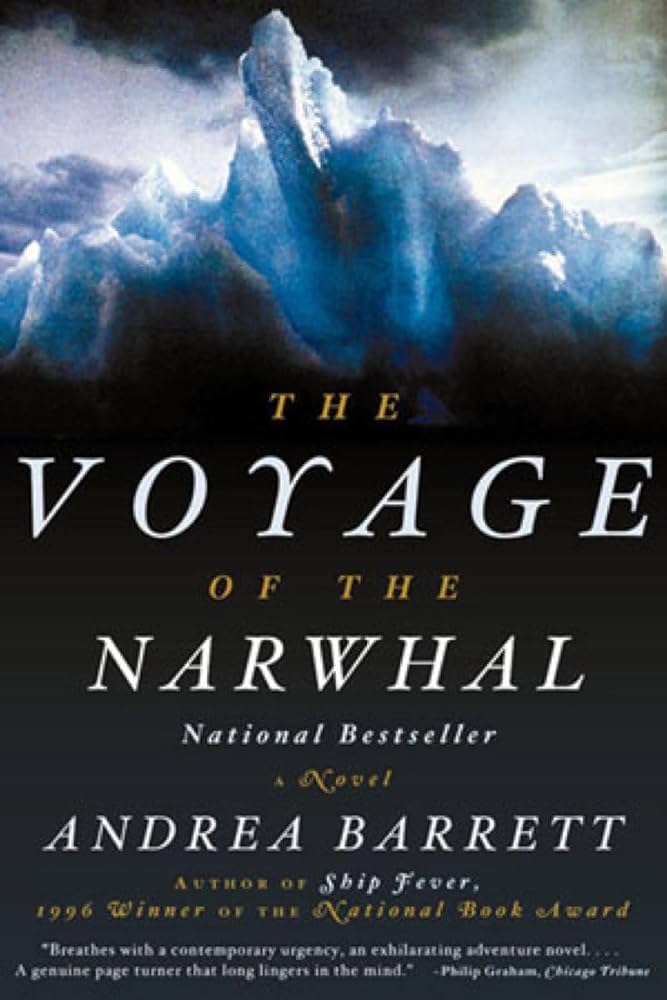
Ada Blackjack : a true story of survival in the Arctic by Jennifer Niven
In September 1921, four young men and Ada Blackjack, a diminutive 25-year-old Eskimo woman, ventured deep into the Arctic in a secret attempt to colonize desolate Wrangel Island for Great Britain. Two years later, Ada Blackjack emerged as the sole survivor of this ambitious polar expedition. This young, unskilled woman–who had headed to the Arctic in search of money and a husband–conquered the seemingly unconquerable north and survived all alone after her male companions had perished.
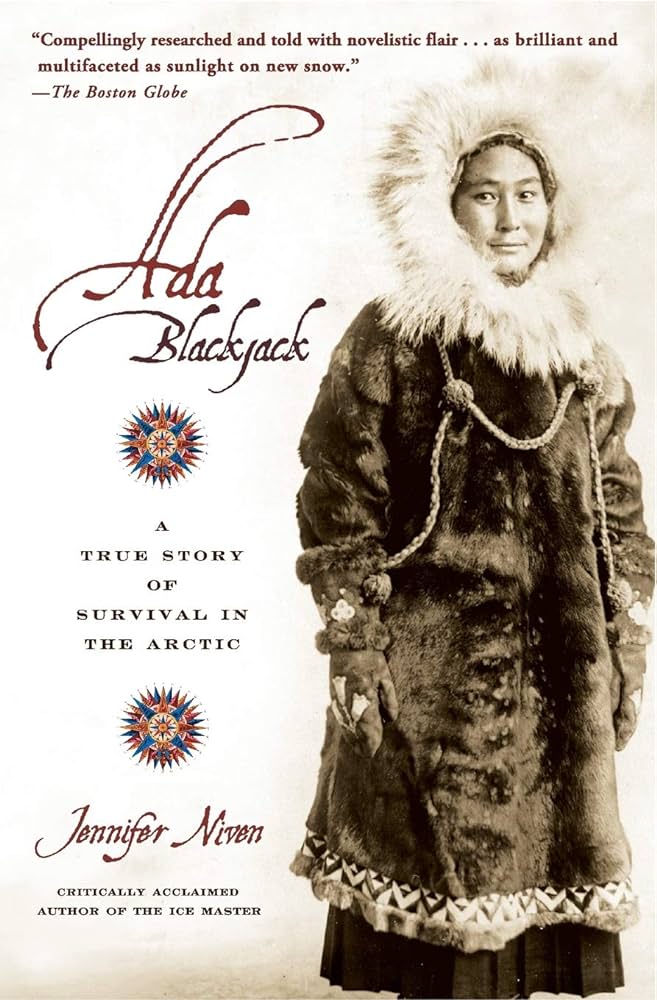
.
Antarctica
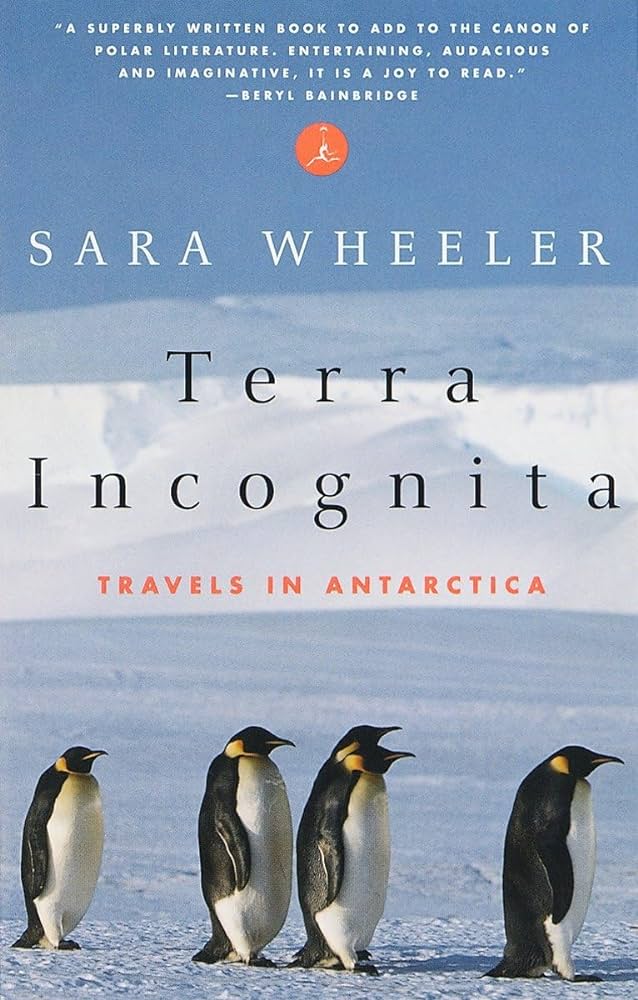
Terra Incognita: travels in Antarctica by Sara Wheeler
It is the coldest, windiest, driest place on earth, an icy desert of unearthly beauty and stubborn impenetrability. For centuries, Antarctica has captured the imagination of our greatest scientists and explorers, lingering in the spirit long after their return. Shackleton called it “the last great journey”; for Apsley Cherry-Garrard it was the worst journey in the world. This is a book about the call of the wild and the response of the spirit to a country that exists perhaps most vividly in the mind. Sara Wheeler spent seven months in Antarctica, living with its scientists and dreamers. No book is more true to the spirit of that continent–beguiling, enchanted and vast beyond the furthest reaches of our imagination.
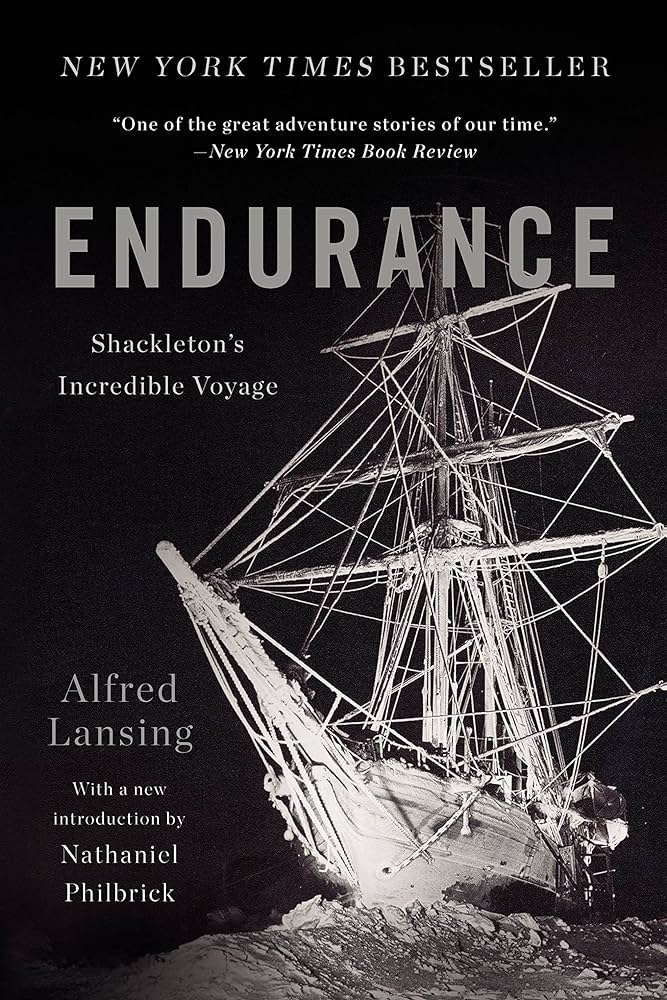
Endurance: Shackleton’s incredible voyage by Alfred Lansing
Bound for Antarctica, where polar explorer Ernest Shackleton planned to cross on foot the last uncharted continent, the Endurance set sail from England in August 1914. In January 1915, after battling its way for six weeks through a thousand miles of pack ice and now only a day’s sail short of its destination, the Endurance became locked in an island of ice. For ten months the ice-moored Endurance drifted northwest before it was finally crushed. But for Shackleton and his crew of twenty-seven men the ordeal had barely begun. It would end only after a near-miraculous journey by Shackleton and a skeleton crew through over 850 miles of the South Atlantic’s heaviest seas to the closest outpost of civilization. This astonishing tale of survival by Shackleton and all twenty-seven of his men for over a year on the ice-bound Antarctic seas, as Time magazine put it, “defined heroism.” Alfred Lansing’s brilliantly narrated book has long been acknowledged as the definitive account of the Endurance’s fateful trip
Where’d You Go, Bernadette: a novel by Maria Semple
Bernadette Fox is notorious. To her Microsoft-guru husband, she’s a fearlessly opinionated partner; to fellow private-school mothers in Seattle, she’s a disgrace; to design mavens, she’s a revolutionary architect; and to 15-year-old Bee, she is her best friend and, simply, Mom. Then Bernadette vanishes. It all began when Bee aced her report card and claimed her promised reward: a family trip to Antarctica. But Bernadette’s intensifying allergy to Seattle — and people in general — has made her so agoraphobic that a virtual assistant in India now runs her most basic errands. A trip to the end of the earth is problematic.

The Stowaway : a young man’s extraordinary adventure to Antarctica by Laurie Gwen Shapiro
The spectacular, true story of a scrappy teenager from New York’s Lower East Side who stowed away on the Roaring Twenties’ most remarkable feat of science and daring: an expedition to Antarctica. It was 1928: a time of illicit booze, of Gatsby and Babe Ruth, of freewheeling fun. The Great War was over and American optimism was higher than the stock market. What better moment to launch an expedition to Antarctica, the planet’s final frontier? This was the moon landing before the 1960s. Everyone wanted to join the adventure. Rockefellers and Vanderbilts begged to be taken along as mess boys, and newspapers across the globe covered the planning’s every stage. The night before the expedition’s flagship launched, Billy Gawronski–a skinny, first generation New York City high schooler desperate to escape a dreary future in the family upholstery business–jumped into the Hudson River and snuck aboard. Could he get away with it?
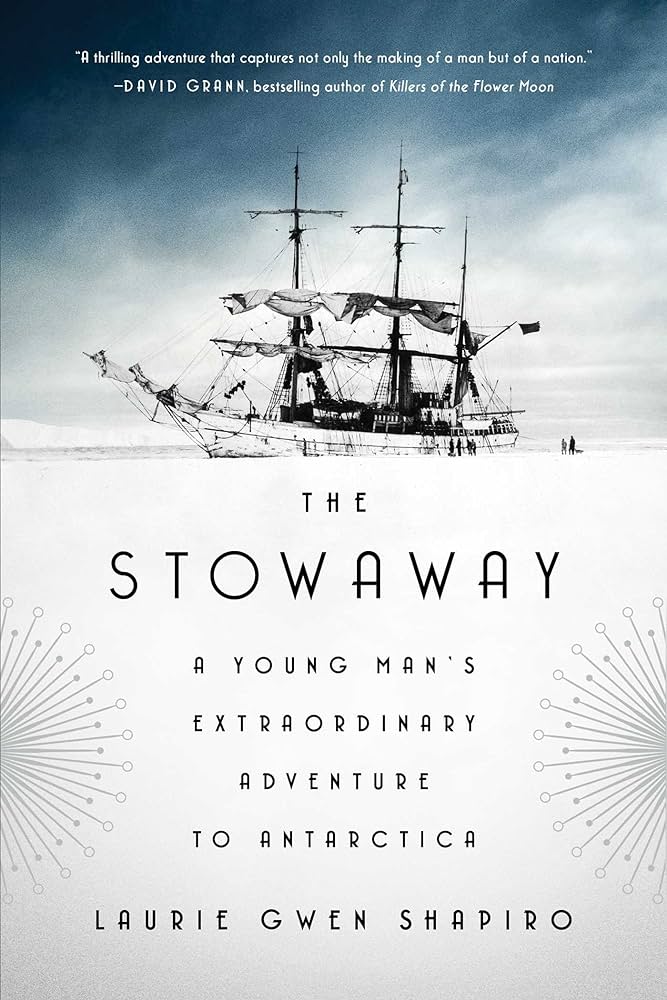
.

I guess not in the collection — and also a graphic novel — but for Antarctica, Whiteout by Greg Rucka and Steve Lieber. In no small part because how the art helps makes the landscape a central character.
LikeLike